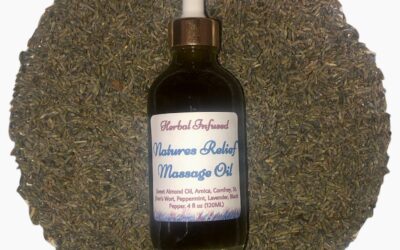In today’s fast-paced world, stress has become an all-too-common companion. Emails, deadlines, social media, and endless to-do lists can leave us feeling overwhelmed and on edge. But there is hope. Massage therapy has emerged as a proven method for combating stress and its negative effects on the mind and body. In fact, just a 10-minute session can activate the body’s natural happy hormones, leaving you feeling more calm, relaxed, and in control.
Understanding the Impact of Stress
Stress, while a normal part of life, can have detrimental effects when it starts affecting our overall well-being. Chronic stress can manifest in a variety of physical and psychological symptoms, including shortness of breath, heart palpitations, increased sweating, headaches, insomnia, and even depression and anxiety. These reactions wreak havoc on our nervous system and can lead to serious health issues if left unchecked.
Massage therapy offers a holistic approach to stress reduction, addressing both the physical and emotional aspects of stress. By engaging in regular massage sessions, you can effectively combat stress and its related symptoms, promoting a sense of balance, relaxation, and overall well-being.
The Power of Massage in Stress Reduction
Massage therapy works by reducing heart rate, calming the central nervous system, and triggering a relaxation response in the body. Through the simple act of touch and methodic kneading, massage invites the body to ease up and sink into a state of deep relaxation. This emotional response is ignited by the release of serotonin, the body’s natural happiness and relaxation hormone.
1. Massage Therapy: Activating the Relaxation Response
The relaxation response is the body’s natural antidote to stress. When we experience stress, our bodies go into a heightened state of anxiety, activating the fight-or-flight response. Massage therapy helps to counteract this response by encouraging the body to “slow down” and enter a more calm, relaxed state.
2. Massage Therapy: Relieving Muscular Tension
When we’re stressed, our muscles involuntarily tighten up, causing tension and discomfort. Massage therapy can effectively alleviate chronic pain and muscular tension by increasing tissue elasticity and stimulating the parasympathetic nervous system.
Techniques such as kneading, stretching, and stroking help to warm and loosen the muscle fibers, providing relief and improved flexibility. Whether it’s the major muscle groups or the smaller areas like hands and feet, massage can target specific areas of tension to promote relaxation and pain relief.
3. Massage Therapy: Lowering Blood Pressure
High blood pressure is a common symptom of chronic stress. Massage therapy has been shown to improve blood circulation, helping to lower blood pressure and promote overall cardiovascular health.
By calming the sympathetic nervous system, which is responsible for raising blood pressure in response to stress, massage therapy allows the body to self-regulate and return to a natural and healthier function. Relaxation-focused modalities like relaxation massage or aromatherapy massage have been found to be particularly effective in reducing blood pressure and heart rate.
4. Massage Therapy: Enhancing Sleep Quality
Stress can wreak havoc on our sleep patterns, leading to insomnia and restless nights. Massage therapy can help improve sleep quality by directly influencing the body’s production of serotonin and melatonin.
Serotonin, the mood-stabilizing hormone, promotes relaxation and helps regulate basic functions like eating, digestion, and sleeping. By triggering the release of serotonin and reducing cortisol, the stress hormone, massage therapy creates a relaxed state of being that is essential for falling asleep soundly.
Essential oils, such as lavender, can further enhance the sleep-promoting effects of massage therapy, coaxing the body into a blissful state of relaxation.
5. Massage Therapy: Nurturing Mental Health
Massage therapy goes beyond physical benefits and extends to our mental and emotional well-being. By stimulating receptors, nerves, and hormones responsible for mood regulation, massage can promote positive mental health.
During a massage session, receptors are triggered, bringing therapeutic relief and overall improved mood and well-being. Massage has been shown to increase vagal nerve activity, which is often low in individuals experiencing depression. By stimulating this nerve, cortisol levels decrease, leading to a more relaxed and happier state.
Additionally, studies have indicated that massage can alter brain activity, shifting activity from the right frontal lobe, associated with negative emotions, to the left frontal lobe, responsible for mood and stress regulation. This shift in brain activity further contributes to stress reduction and improved mental health.
Why Massage Therapy for Stress?
Massage therapy is one of the best stress-busting tools available to us. Beyond its physical benefits, massage provides a quiet and welcoming atmosphere, inviting our bodies and minds to relax, heal, and rejuvenate. While a single massage session can provide temporary relief, establishing a long-term massage plan with a qualified massage therapist is key to effectively managing chronic stress.
As a Licensed Massage Therapist, I am dedicated to helping my clients reduce their stress levels through the power of massage. With a compassionate and nurturing approach, I create a safe space for my clients to unwind, release tension, and find peace within themselves. If you’re ready to experience the transformative benefits of massage therapy, I invite you to book an appointment with me at Traverse Massage Intuitive Therapies.
Remember, stress doesn’t have to rule your life. With the healing touch of massage therapy, you can find relief, relaxation, and a renewed sense of well-being. Take the first step towards a stress-free life and embark on a journey of self-care and healing through the power of massage.
Disclaimer: This article is for informational purposes only and should not replace professional medical advice. Always consult with a healthcare provider before starting any new treatment or therapy.


















